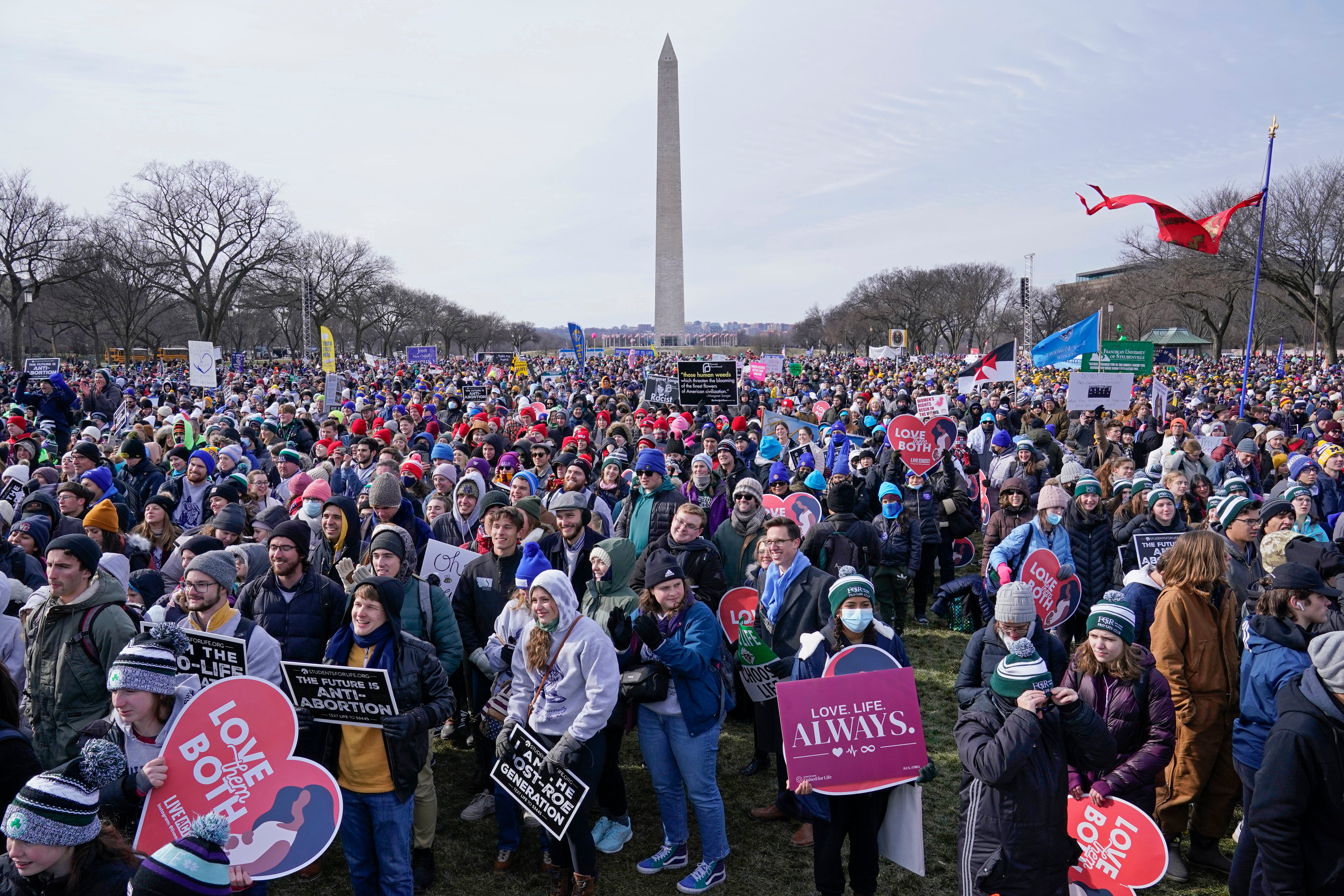
The state of South Dakota will soon follow Texas and Mississippi with legislation that would cut back significantly on abortion rights in the state and directly challenge the precedent established by Roe v Wade.
A pair of bills were unveiled by Kirsti Noem, the state’s conservative governor last week; one the bills would outlaw abortions after a fetal heartbeat is detected, which is around five to seven weeks into a pregnancy. That standard is well outside the standard set in the Supreme Court’s landmark abortion rights ruling in Roe v Wade, which forbids bans on abortions before the third trimester of a pregnancy begins.
The second bill would codify a recent executive order signed by Ms Noem, which bars abortion referrals through virtual doctor visits.
If passed, the ban would be the third direct challenge to Roe behind a Texas bill banning abortions after 10 weeks and a Mississippi bill banning them after 15 weeks into the pregnancy. Texas’ bill is highly controversial on its own merits as well thanks to a provision that bans state officials from enforcing it and instead deputises residents to enforce the law via the court system via a bounty system.
Her announcement coincided with the March for Life, an annual anti-abortion march held in Washington DC, which took place on Saturday.
“Every human life is unique and beautiful from the moment it is conceived. Every life is worthy of our protection, worthy of the right to live,” said Ms Noem in a statement. “We hope that this year’s March for Life will be the last and that the Supreme Court will finally protect every unborn life. But until that comes to pass, these bills will ensure that both unborn children and their mothers are protected in South Dakota.”

Her news release went on to tout an 80 per cent drop in abortions performed in the state over the past 10 years.
The GOP is seen as pursuing a major push to further restrict abortion rights across the US thanks to newfound confidence that the anti-abortion movement has shown towards seeing abortion bans being upheld by the Supreme Court; that confidence is a direct result of the three successful confirmations of judges seen by abortion rights supporters as hostile to Roe V Wade’s precedent during the Trump administration.
Donald Trump’s nominees to the nation’s highest court are seen as having cemented a conservative majority on the bench for the next few decades and having the potential of posing the first major threat to abortion rights since Roe V Wade was decided.
Activists gathered in DC last year as oral arguments were heard in the case of Mississippi’s law before the court. Numerous Democratic lawmakers including Senate Majority Leader Chuck Schumer attended the pro-abortion rights demonstrations, while GOP politicians largely chose to support the anti-abortion protesters via social media if at all.







